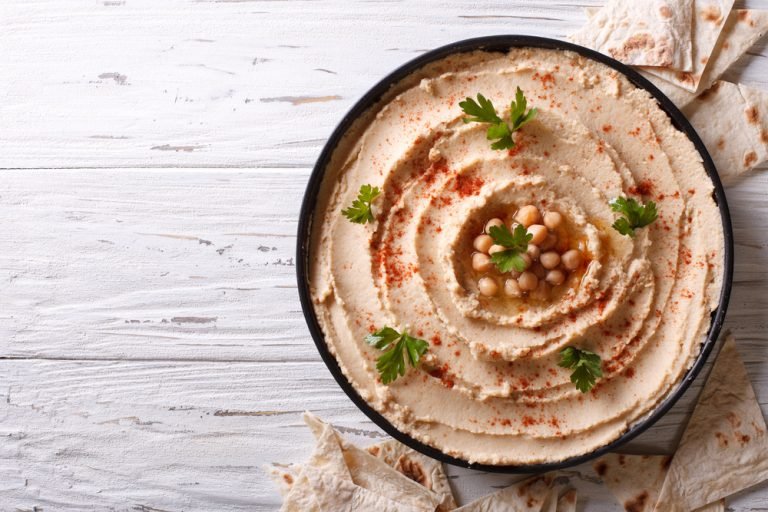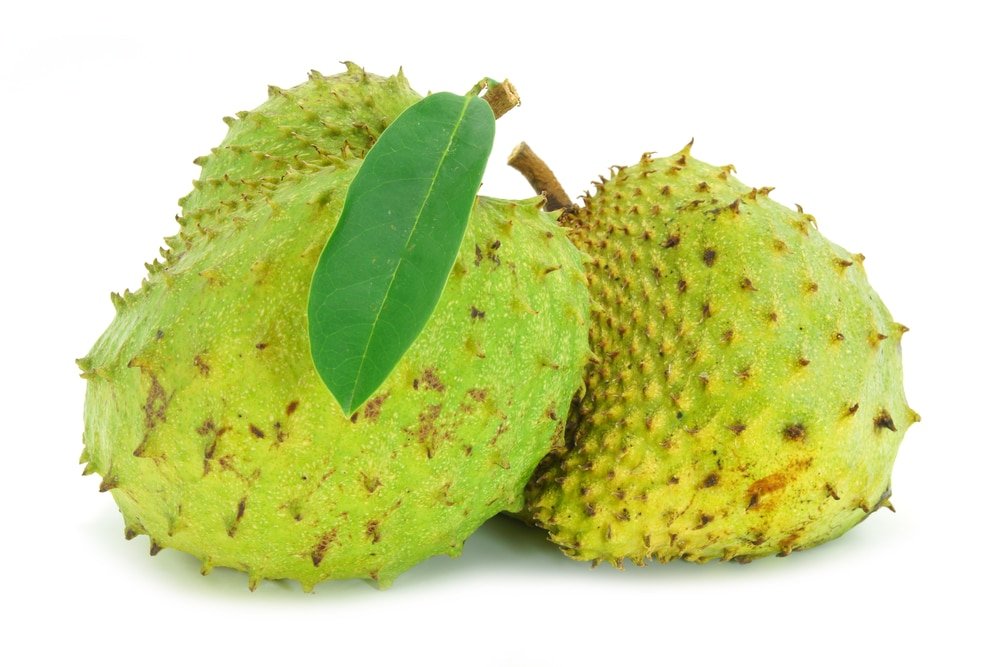Health benefits of hummus includes preventing oxidative stress, controlling cholesterol levels, improving skin condition, preventing cancer, promoting digestion, managing blood sugar, promoting bone density, helping in weight loss, improving cardiovascular health, and boosting energy levels.
Due to its incredible taste and considerable health benefits, hummus has been a part of various cultures for centuries. People consume it widely in the Middle East and northern parts of Africa. Take note that people eat and prepare the original hummus with preservative-free tahini sauce in these regions.
This thick and creamy food has made its way to North America and Europe and became one of the most-liked foreign food sources. It is also ideal as it provides plant-based protein up to 7.9g per serving.
This makes hummus a nutrient-dense food source for vegan and vegetarians. People who consume it as a topping will probably increase its intake after knowing the jaw-dropping benefits of hummus on the health.
Nutritional Value of Hummus
One serving of hummus can provide the following nutrients.
- Calories 166
- Carbs 7.9g
- Copper 26%
- Calcium 5%
- Dietary fiber 6.0g
- Folate 21%
- Iron 14%
- Magnesium 18%
- Manganese 39%
- Phosphorus 18%
- Potassium 7%
- Thiamin 12%
- Vitamin B6 10%
- Zinc 12%
How to Make Hummus

Ingredients
- Crushed garlic
- 1/3 cup tahini sauce
- One tablespoon of olive oil
- 2 cups of boiled chickpeas
- ¼ of lemon juice
- Salt to taste
Method
- Put all ingredients into a food processor and blend until it becomes smooth.
- Your delish hummus is ready to serve with wraps and sandwiches.
- You can use it as a dip as well.
In light of this, here are 13 fantastic benefits of hummus.
1. Boosts Energy Levels
Hummus contains protein, carbohydrates, and starches. These nutrients keep your body energized throughout the day. The carbs in hummus are complex carbs which take a few hours to digest properly and keep you full for a long time.
You can also obtain starch from chickpeas which provide glucose to your body. It absorbs in your body steadily without spiking sugar levels in your bloodstream. This glucose in hummus is safe for your health unlike the refined sugars in bread, pasta, and candy. Consuming these food sources cause serious glucose spikes which lead to diabetes.
2. Safe in Food Allergy and Intolerance
The fact that hummus is dairy, nut and gluten-free makes it an ideal food source for people who have nut allergies, celiac diseases, and lactose intolerance. You can add it to the diet of children without giving a second thought.
However, be sure to recheck the ingredients on the packaging and purchase the one with fewer or no preservatives. Also, hummus is easy-to-prepare, and you can make some without adding a preservative to it. So, bring it home and increase nutrients intake in no time.
3. Improve Cardiovascular Health
Olive oil is excellent when it comes to maintaining heart health. It provides omega-3s and a slew of nutrients that control blood pressure level, cholesterol buildup in your arteries, and LDL cholesterol in your body.
Sesame seeds are also necessary to lower the risks of cardiovascular disorder. These seeds come in handy and reduce inflammation. Both ingredients are required to prepare hummus so feel free to incorporate it into your diet and maintain a healthy heart.
4. Helps in Weight Loss
Nutritionists recommend hummus to sustain healthy body weight. It keeps you full for hours and curbs increased appetite. According to a recent survey, people who consume hummus regularly are not prone to obesity. And, they have lower BMI than the ones who do not eat hummus frequently.
Consuming legumes like chickpeas are helpful when it comes to shedding some extra pounds and enhancing satiety.
5. Promotes Bone Density
Hummus is a storehouse of nutrients that strengthen your bones. Minerals like copper play a significant role in this context as well. Copper helps maintain your skeletal structure and keeps collagen and elastin together. Calcium is also an essential mineral that strengthens your bone and prevents age-related bone deterioration.
6. Manages Blood Sugar
Due to a low glycemic index (GI) chickpeas control blood sugar levels. Food sources with lower GI value are absorbed and digested quite slowly which ultimately leads to a steady rise and fall of sugar levels in your bloodstream. Hummus provides a considerable amount of soluble fiber which helps maintain blood sugar levels.
7. Promotes Digestion
Chickpeas are a powerhouse of dietary fiber which means consuming hummus affects your digestion. Your body needs a considerable amount of fiber to support digestion. It eliminates toxins from your body as well. The nutrient is also necessary for bile excretion which facilitates the functioning of the digestive tract. Improved digestion prevents the risk of stomach disorders as well.
8. Combats Inflammation
Although inflammation protects you from several illnesses such as fever, infection, and injury, if it continues for a long time, inflammation can cause serious health problems. The ingredients like olive oil in hummus can combat chronic inflammation. Olive oil is rich in antioxidants and anti-inflammatory properties which help lower inflammation and relieve your condition.
9. Prevents Cancer
Studies have shown the benefits of consuming folate-dense food sources. Obtaining folate from hummus can lower the risk of colorectal cancers. This is possible because the dietary fiber in hummus promotes the good bacteria in your gut which alleviates the risks of colon cancer. However, more evidence is required to prove the claim.
10. Treats Anemia
Iron is necessary to deliver oxygen to your red blood cells. You will be pleasantly surprised to learn that chickpeas and tahini are rich in iron. Incorporating hummus into your can lower the risks of anemia as well.
11. Improves Skin Condition
Plant-based proteins are the building-block of the healthy skin. Once you start consuming hummus regularly, you will notice a difference in your skin texture. Also, the nutrients in the hummus prevent the onset of premature aging and keep your skin soft and subtle.
12. Prevents Oxidative Stress
Chickpeas contain plenty of antioxidants which you can obtain by consuming hummus. Take note that antioxidants combat oxidative stress from organs and free radicals. Both factors lead to the development of chronic diseases. So, add hummus to your diet and promote your overall health.
13. Controls Cholesterol Levels
High cholesterol levels mean a higher risk of cardiovascular disease. Hummus provides various nutrients like fiber that soak excess cholesterol from blood vessels. Eating hummus prevents the onset of heart diseases like hypertension and control cholesterol levels at the same time.
Bottom Line
It is true that food sources like hummus do not have adverse effects on your health. However, it is better to consume everything in moderation. In case of chronic disease, we suggest that you consult with your doctor before incorporating hummus into your diet.
Join the 7‑Day “Better Gut” Plan
Pop in your email and we’ll send Lesson 1 + the printable list.







